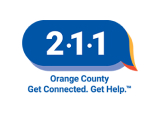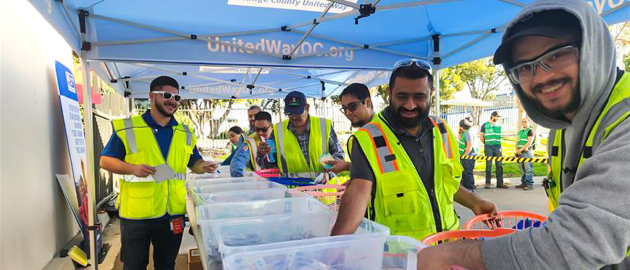Irvine, CA (April 25, 2023) – In observance of Affordable and Fair Housing Month, the Orange County Eviction Diversion Collaborative (OCEDC), Orange County United Way and St. Joseph Community Partnership Fund have launched a new baseline report regarding the state of evictions in Orange County.
In the United States, millions of individuals and families are evicted from their homes each year. Eviction causes unstable living environments, homelessness, and plunges people deeper into poverty.
“We established the Collaborative and commissioned this report to raise awareness of the impact of evictions on low-income households and to build momentum for sustainable regional solutions,” said Michelle Murphy, Senior Director, Public Affairs, Orange County United Way. “The report’s data-based findings shed a bright light on eviction trends during the COVID-19 pandemic and the types of households most at risk for housing instability, plus the report presents potential regional solutions inspired by best practices from around the country.”
Key findings of the report are summarized below.
Why should eviction diversion be a critical policy focus?
- For households that experience an eviction, the effects can be devastating and long-lasting.
- Eviction is not equal opportunity: people of color and women are at higher risk for eviction than other groups.
- As COVID-19 pandemic-related emergency funding and the eviction moratorium sunsetted in early 2022, eviction filings and calls for eviction assistance rose quickly, only to fall again at the end of 2022.
What contributes to eviction risk?
- Evictions often result from the snowball effect of a crisis event, such as illness or losing a job.
- Undocumented Latino residents are particularly at risk of being evicted.
- High average and rapidly rising rents, and low vacancy rates increase eviction risk. In Orange County, the average apartment rent was $2,328 in the fourth quarter of 2021, which was up 19% from the fourth quarter of 2020. The rental vacancy rate was just 4% in 2021.
- Student households may be at higher risk of eviction.
What is our ability to meet the need for eviction diversion services?
- The need for eviction diversion services in Orange County outpaced the supply, whether in the form of emergency rental assistance or legal counseling and representation.
- Eviction diversion services are in high demand.
What are the biggest challenges to serving households at risk for eviction?
- Service Gaps and Funding Restrictions
- Pandemic-related emergency rental funding helped stabilize many households, but this assistance did not reach all who were in need.
- While there is recognition that strong programs and support exist in the community, the safety net has holes.
- Barriers to Successful Diversion
-
- Interventions tend to happen too late in the process.
- Landlords uninterested in mediation make it difficult to keep the household in their existing housing.
- Tenants may lack awareness of tenant rights or how to navigate the system.
- Even if a household receives emergency rental assistance, maintaining long-term stability is a challenge if other needs of families are not also addressed.
What are the recommended next steps for Orange County?
- Now is a critical time and opportunity to recruit and engage various partners more deliberately. Recommended next steps include:
-
- Identify a central agency and staffing to lead ongoing research, evaluation and implementation of eviction diversion programming in the county and facilitate the OCEDC.
- Expand the OCEDC to include tech and data evaluation, other members of government, tenants, landlords and/or property owners, and faith-based organizations.
- Develop key working groups under the OCEDC to focus the work and serve as active drivers toward building successful strategies
- Create shared language, key metrics, and a central depository for eviction data.
What benefits can we expect to see by implementing eviction diversion programs?
- Eviction diversion programs substantially benefit communities, including:
-
- Reducing homelessness and housing instability for households;
- Providing fair, just, and equitable systems;
- Strengthening service coordination among community partners;
- Allowing courts to focus on adjudicating other matters; and
- Ensuring landlords remain compensated.
To view the full report, please visit: ocuw.to/eviction-diversion.
ABOUT ORANGE COUNTY UNITED WAY
Orange County United Way is committed to breaking barriers and improving lives for everyone who lives here. Through our three key initiatives—United for Student Success℠, United for Financial Security℠, and United to End Homelessness℠—we are working to ensure local students succeed, struggling OC families gain financial security, and our homeless neighbors find a place to call home. We step up to actively address the critical issues facing our community and we go the extra mile to make sure our residents have the support they need. We are committed to caring for one another. That’s #TheOCWay.
To learn more or discover how you can help, visit UnitedWayOC.org.
Orange County United Way is a standalone, independent 501(c)(3) non-profit organization.
# # #
Media Contact: Annie Noebel, anoebel@cornerstonecomms.com, (949) 525-7024









